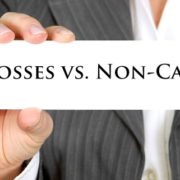Voluntary Disclosures – Should I Apply?
What is Voluntary Disclosures Program (VDP)?
The VDP is a Canada Revenue Agency (CRA) administered program which allows taxpayers to disclose or amend historical tax returns due to inaccuracy or unreported tax information. Under the program the CRA will not charge penalties or prosecute the taxpayer. The program also promises to grant partial interest relief if you are accepted under the program.
A disclosure must meet the following four conditions in order to qualify as a valid disclosure:
- Voluntary – The disclosure has to be voluntary. You cannot apply for this program once the CRA starts to audit your books and records. You will not qualify for this program once the CRA contacts you.
- Complete – The taxpayer must provide complete and accurate information for the period you are applying for.
- Penalty – There has to be situation where a penalty would apply to the taxpayer. This usually constitutes that there is taxes owing, otherwise the use of this program would be useless.
- One year past due – The disclosure has to be one year past due.
Should I Apply?
After briefly reviewing the details of the VDP program everything looks great on the surface. It had finally seemed like the CRA had implemented a program which would allow Canadians to correct past period errors without hefty penalties and interest.
Before we can fully start utilizing the program there are ambiguities that the taxpayer must understand. One of the most common misconceptions is that the CRA will not charge penalties or interest if you make a submission under this program.
In the VDP publication the CRA states that if the CRA accepts a disclosure as having met the conditions set out in this policy, it will be considered a valid disclosure and the taxpayer will not be charged penalties or prosecuted with respect to the disclosure. However, the CRA contradicts itself and states that the Minister does not have to grant relief under the VDP provisions. Each request will be reviewed and decided on its own merit. If relief is denied or partly granted, the CRA will provide the taxpayer with an explanation of the reasons and factors for the decision.
When determining if interest and penalties should be charged, the CRA will assess on a case by case basis. This decision is most likely made by the CRA agent assessing the case.
Can the information provided be used against me?
One of the most common question that comes up during a VDP discussion is, if the CRA denies the VDP, can they used the information against you?
The Answer is yes, the CRA can use the information against you. There are several things that can take place once the denial letter is issued:
- The information that was disclosed may be referred to another CRA department
- The information that was disclosed may result in assessments
- The CRA can use that information to levy penalties and interest
- The disclosed information may even be used to investigate or prosecute you
Recommendation
Before making a submission it’s vital that the taxpayer seek expert advice, and understand the full details of the program.
VDP video published by the CRA:







